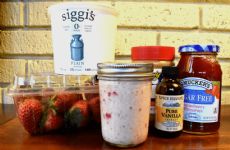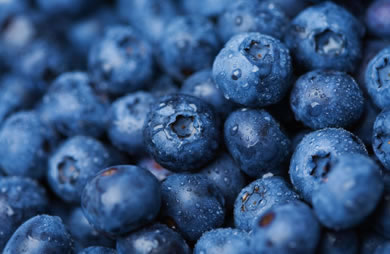By TONKA14,
SparkPeople Blogger
1/14/2010
Researchers at Tufts University recently looked at 29 restaurant meals from casual dining establishments such as Wendy's and Ruby Tuesday and 10 frozen supermarket meals like Lean Cuisine, Weight Watchers, and Healthy Choices. The study findings regarding the accuracy of the stated energy content have been published in this month's The Journal of the American Dietetic Association. What did they reveal?
Casual dining meals typically averaged 18% more calories than the provided nutrition information indicated and the frozen meals averaged 8% more than the calories listed on the nutrition label. Renowned nutrition professor Marion Nestle was not surprised by these findings because she feels nutrition labels where intended to be general estimates versus scientifically accurate in the information they report. I'm sure many of you are shrieking in horror at the idea that the labels are not accurate.
The Nutrition Labeling and Education Act of 1990 amended the Federal Food, Drug, and Cosmetic Act and legislated what must be included on food labels. In 1996, then Health and Human Services Secretary Donna Shalala, reported 91 percent of tests on sample food products provided accurate nutrition information. This was an improvement from tests completed in 1994 which showed only 87% accuracy. While it is encouraging to see there is consistency in the inaccuracy, what are we to do when the nutrition label or posted calorie content are suppose to be standards on which we base our diet and nutrition decision making.
We could sit around wringing our hands and feeling defeated because we can't trust information or we could choose to take positive steps to take control of our lives in ways that really matter. I vote for positive action versus negative reaction. Here are a few things that will hopefully help you do just that.
- Select more foods that come in natural packaging and don't require a label: Foods in their natural packaging like fruits and vegetables are lower calorie, nutrient rich options that are pretty consistent related to the calories they provide. When you use these either as a snack or in a main dish, you are taking positive action to control your nutrient intake.
- Focus on eating to live and not living to eat: It can be very easy to focus so much on the number of calories you are consuming that it becomes an unhealthy obsession. When we are able to fill our lives with goals and use food as the fuel that helps us reach those goals, food becomes a means to an end for us instead of an activity in our day and something we try to control. If not knowing exactly how many calories are in a food you are eating freaks you out, perhaps you need to take a positive step back. Look at the goals you have set or need to set and decide how the foods you select will help you accomplish them. As one member stated so eloquently on a message board post last week, it is important to know if you are consuming 1,500 calories or 1,200 calories, but it isn't imperative that you know if you are consuming 1,250 calories.
- Use a journal or food tracker as an educational tool instead of a calculator: One of the things a registered dietitian is trained to do is to collect a 24-hour diet recall. Partly this recall is to evaluate the person's meal selection for nutrient composition but more importantly, it is to gauge where nutrition intervention and education need to begin. Keeping a written journal or using an electronic tool to monitor what you eat can do the same thing for you if you look beyond the basic calorie calculation as the bottom line. Reviewing your "diet recall" for the day or the week will allow you to evaluate if you are making positive changes in the foods and portion sizes you are selecting. You can use it to see if you eat more at one time of day than another and if your macronutrients are balanced. This tool can provide a great deal of useful information if you use it for evaluation instead of only calculation.
More than likely the food you eat, even in the correct portion size, will not provide EXACTLY the number of calories and nutrients listed on the food label. More than likely, the number of calories and nutrients you are aiming to consume in a day is not EXACTLY what you need. This is largely why calories and macronutrient needs are provided in ranges instead of exact numbers. Focus on the bigger picture and how the foods you select are contributing to your ability to reach goals and helping you get where you want to go. Each day and each week provides plenty of opportunities to make small changes that when added together can make positive contributions to get you where you want to be and like the saying goes – don't sweat the small stuff.
Did you think the calorie and nutrient information on nutrition labels was a general estimate or scientifically accurate.
|
|




.jpg)




.png)


.jpg)









